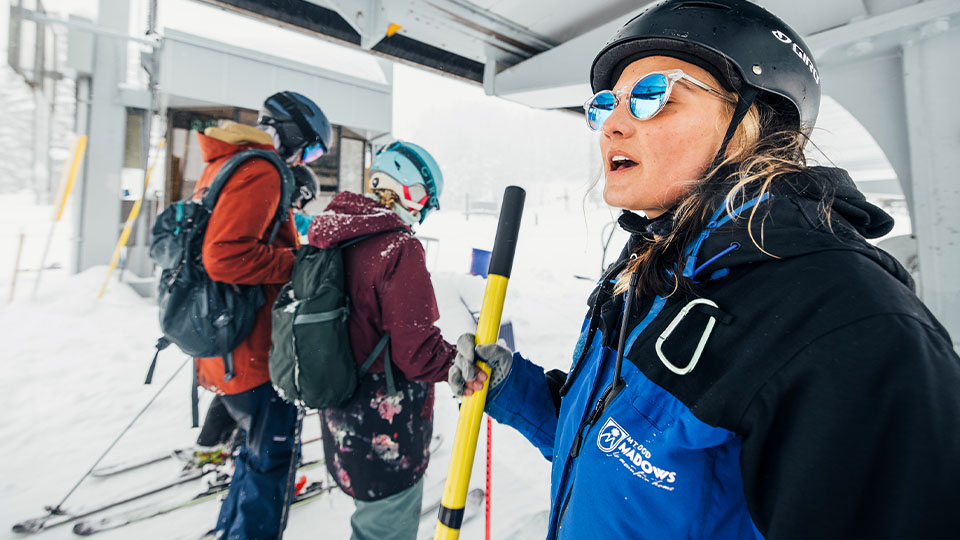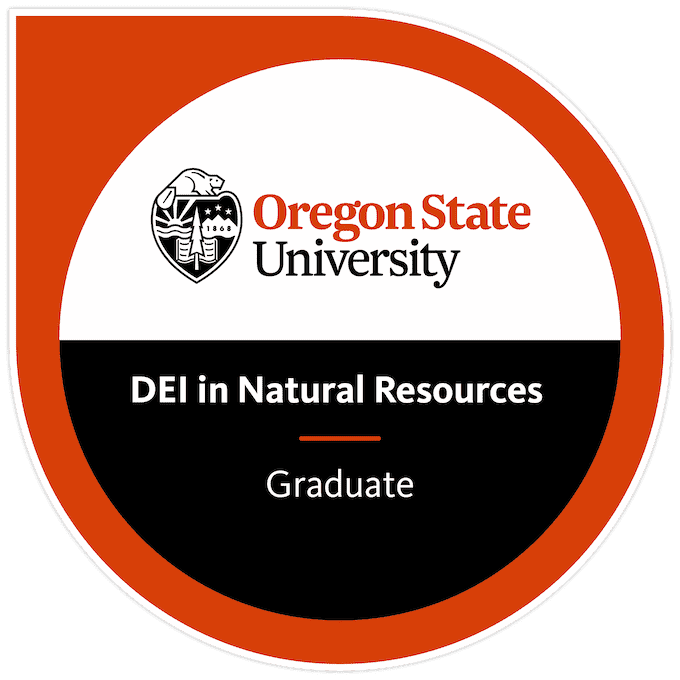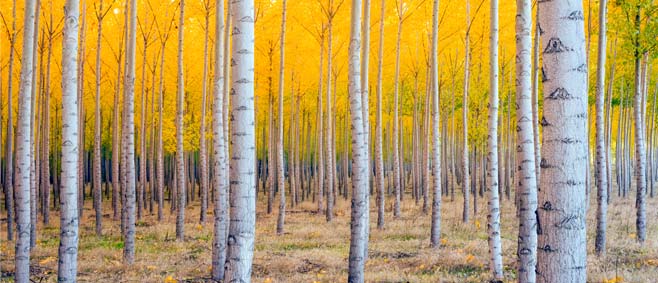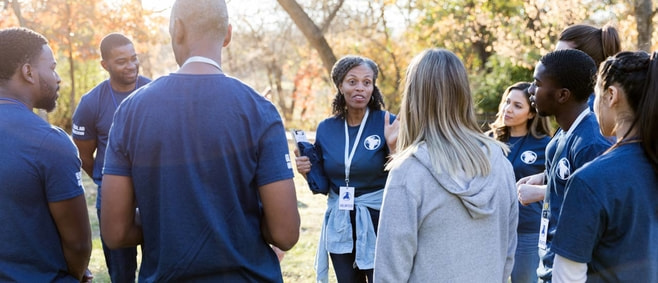DEI in natural resources
Protecting our planet is a shared responsibility, and natural resource management is one critical component of ensuring a sustainable future for all. But who gets a voice in how resources are managed, and how is consensus built? When you earn a Microcredential in DEI in Natural Resources online from Oregon State University, you will gain hands-on experience working with others to solve real-world resource issues collaboratively — equipping you with vital skills for more inclusive and effective resource governance.
This graduate-level microcredential from the College of Forestry was developed in partnership with Oregon State’s Center for the Outdoor Recreation Economy. You’ll learn how to promote inclusive practices in decision-making, apply diversity, equity and inclusion principles within natural resource contexts, and delve into social sustainability indicators for managing resources in communities.
Coursework (9 credits)
This is an advanced-level microcredential that is designed for those with previous experience in a subject. These offerings provide in-depth training so you can build specialized skills that will help you excel in your field. Often, advanced microcredentials require some prerequisite college courses.
Skills you’ll gain
The in-demand skills you'll develop as a student in this microcredential will give you what you need to stand out and level up in your career.
- DEI awareness
- DEI application in natural resources
- DEI leadership
- Culture and local knowledge
- Environmental justice
- Human and community well-being
- Stakeholder and public engagement
Additional details
Microcredential details
Oregon State microcredentials consist of at least three courses and 8 credits that follow OSU’s quarterly term calendar. All microcredentials are delivered online and some microcredentials may be offered on campus. All course credits used to complete a microcredential must be completed at Oregon State and transfer credit and placement tests may not be used toward microcredential course credits. Read other important microcredential details »
Time it takes to complete a microcredential
Microcredentials allow you to gain specialized skills in focused subject areas in less time than it takes to complete a full degree or certificate program. Typically, you can complete a microcredential in nine to 12 months. All microcredential courses follow the same term schedule as on-campus courses and are not self-paced. Learn more about course delivery methods »
Earning your digital badge
Once you complete all classes in this microcredential, you'll receive a digital badge from Oregon State University. You can add the digital badge to your résumé and on LinkedIn, GitHub or other social media profiles. It provides employers with proof of the skills and discipline-specific knowledge you gained from the microcredential. Oregon State's digital badges are issued by Credly, the world's largest digital credential network.
Course scheduling and availability
Completing a microcredential is dependent on course availability, term offerings, course sequencing and any required prerequisites. Connect with the OSU Ecampus enrollment services team to better understand when courses in this microcredential are delivered to help you create a timeline for application and enrollment. You can also explore the schedule of classes to preview course availability.
Ready to apply for a microcredential? Start here.
- Apply to earn a standalone microcredential: To pursue a microcredential (not alongside any other OSU degree or certificate program), you will apply to Oregon State as a nondegree student. Learn more about the application and the nondegree student experience.
- Apply to earn a microcredential as a current student: If you’re a current OSU student interested in pursuing a microcredential online, please submit this form. Note: You must complete at least one of the microcredential courses after having been accepted into the microcredential.
Tuition and financial aid details for microcredentials
You can find detailed tuition information for microcredential offerings on the tuition rates webpage. Please note: If you are pursuing a standalone microcredential as a nondegree student, you will not qualify for federal financial aid.
If you are pursuing a microcredential as a current student in an OSU degree or certificate program, you will be charged your program's tuition rate (if differential tuition is applicable).
Employer-sponsored students
Earning a microcredential is a great way to develop a skill set that current and future employers are looking for. If your employer offers a tuition benefit program, you may be able to enroll online with Oregon State and receive a tuition scholarship that makes your student experience more affordable. You can also learn about the organizations OSU collaborates with to offer direct tuition benefit programs for online learners.
Request
information
To ensure that you receive emails from us, please add "ecampus@oregonstate.edu" and these domains to your safe senders list: “@oregonstate.edu,” “@discover.oregonstate.edu” and “@email.oregonstate.edu.”
† All mobile information you share will remain confidential and will never be given to external sources. Any costs associated with receiving a text message are the responsibility of the individual receiving the message. Opting in to this mobile text messaging service from Ecampus is free of charge, however, message and data rates may apply from your wireless carrier.
Contact
Our enrollment services team can help answer questions about online learning at Oregon State Ecampus and how to get started.
8 a.m-4 p.m. PT Monday-Friday
Contact Ecampus or book an appointment
To ensure that you receive emails from us, please add “ecampus@oregonstate.edu” and these domains to your safe senders list: “@oregonstate.edu,” “@discover.oregonstate.edu” and “@email.oregonstate.edu.”
Book an appointment
Program-specific questions
Get answers to your questions about pursuing an online DEI in natural resources microcredential.
Contact the College of Forestry
Contact Kevin Bladon in the College of Forestry, at kevin.bladon@oregonstate.edu.






